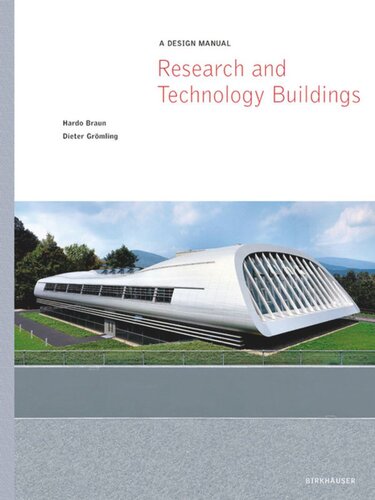

Most ebook files are in PDF format, so you can easily read them using various software such as Foxit Reader or directly on the Google Chrome browser.
Some ebook files are released by publishers in other formats such as .awz, .mobi, .epub, .fb2, etc. You may need to install specific software to read these formats on mobile/PC, such as Calibre.
Please read the tutorial at this link: https://ebookbell.com/faq
We offer FREE conversion to the popular formats you request; however, this may take some time. Therefore, right after payment, please email us, and we will try to provide the service as quickly as possible.
For some exceptional file formats or broken links (if any), please refrain from opening any disputes. Instead, email us first, and we will try to assist within a maximum of 6 hours.
EbookBell Team

5.0
48 reviewsArchitecture for research and technology
The significance of research and technology in today’s economies is undisputed and continues to grow. Designing buildings to accommodate a range of functions, from laboratory experiments through prototype development to presentation and marketing is an architectural field of great potential. Commissioned by universities, public institutes and private companies, the challenge is to reconcile security and accessibility, laboratories equipped with sensitive, state-ofthe-art instruments and facilities for theoretical research.
Zoning, circulation and functional requirements, as well as the historical development and contemporary context of research building, are covered in the opening systematic chapters of this Design Manual. Following this some 70 built projects, largely from Europe, the USA and Asia, are analysed according to a variety of aspects such as urban integration and communications infrastructure.
The authors, both from the internationally renowned Max Planck Society, and contributors draw on their own substantial practical expe rience of planning and building research facilities.